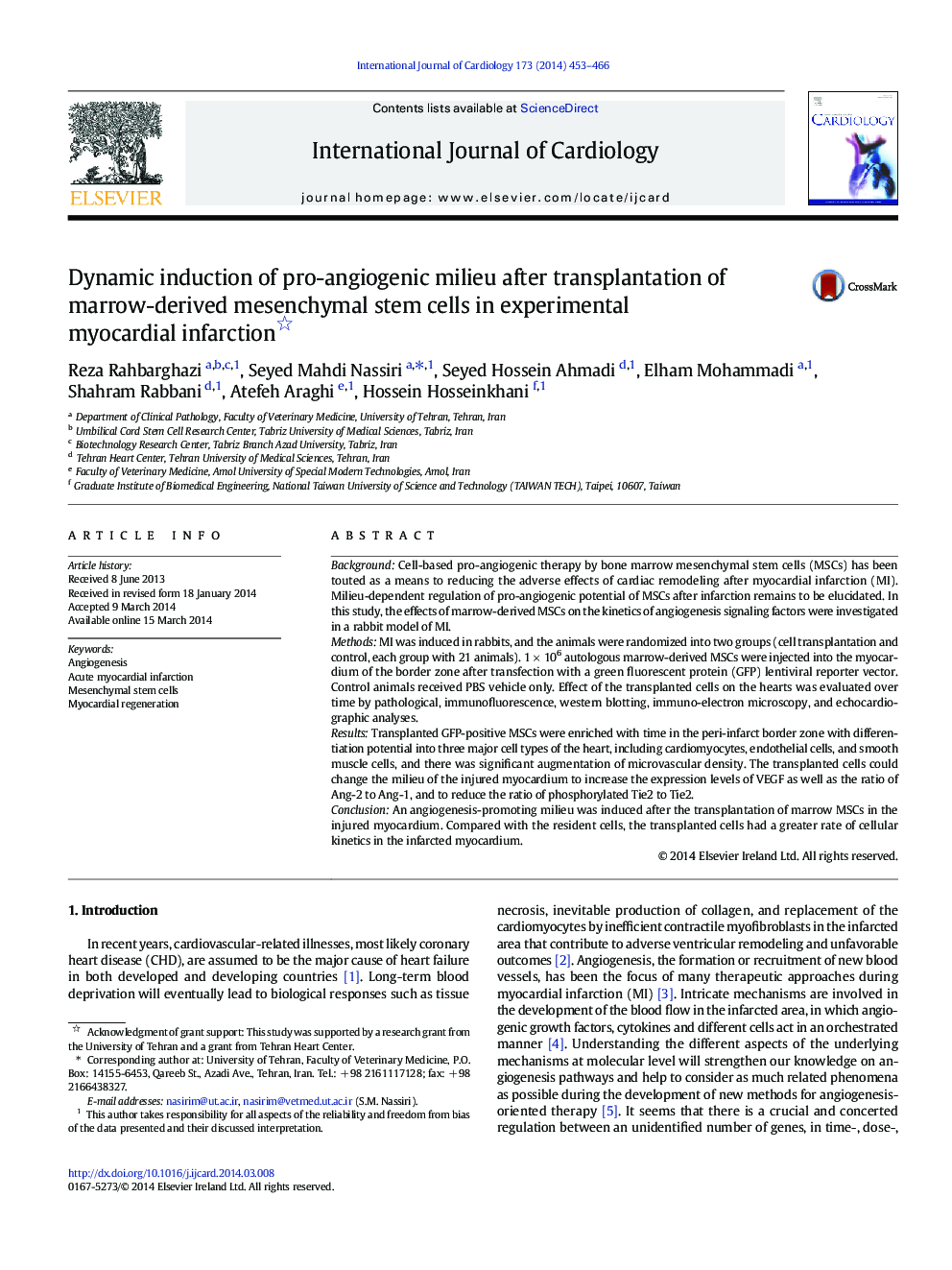| Article ID | Journal | Published Year | Pages | File Type |
|---|---|---|---|---|
| 5972789 | International Journal of Cardiology | 2014 | 14 Pages |
BackgroundCell-based pro-angiogenic therapy by bone marrow mesenchymal stem cells (MSCs) has been touted as a means to reducing the adverse effects of cardiac remodeling after myocardial infarction (MI). Milieu-dependent regulation of pro-angiogenic potential of MSCs after infarction remains to be elucidated. In this study, the effects of marrow-derived MSCs on the kinetics of angiogenesis signaling factors were investigated in a rabbit model of MI.MethodsMI was induced in rabbits, and the animals were randomized into two groups (cell transplantation and control, each group with 21 animals). 1Â ÃÂ 106 autologous marrow-derived MSCs were injected into the myocardium of the border zone after transfection with a green fluorescent protein (GFP) lentiviral reporter vector. Control animals received PBS vehicle only. Effect of the transplanted cells on the hearts was evaluated over time by pathological, immunofluorescence, western blotting, immuno-electron microscopy, and echocardiographic analyses.ResultsTransplanted GFP-positive MSCs were enriched with time in the peri-infarct border zone with differentiation potential into three major cell types of the heart, including cardiomyocytes, endothelial cells, and smooth muscle cells, and there was significant augmentation of microvascular density. The transplanted cells could change the milieu of the injured myocardium to increase the expression levels of VEGF as well as the ratio of Ang-2 to Ang-1, and to reduce the ratio of phosphorylated Tie2 to Tie2.ConclusionAn angiogenesis-promoting milieu was induced after the transplantation of marrow MSCs in the injured myocardium. Compared with the resident cells, the transplanted cells had a greater rate of cellular kinetics in the infarcted myocardium.
